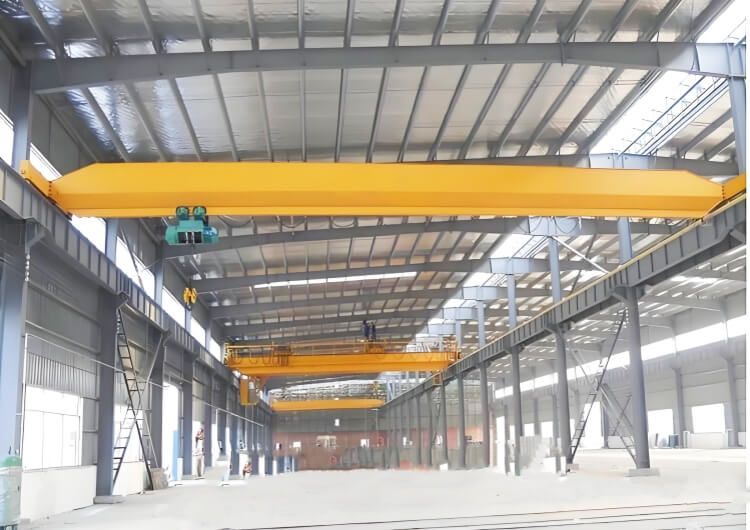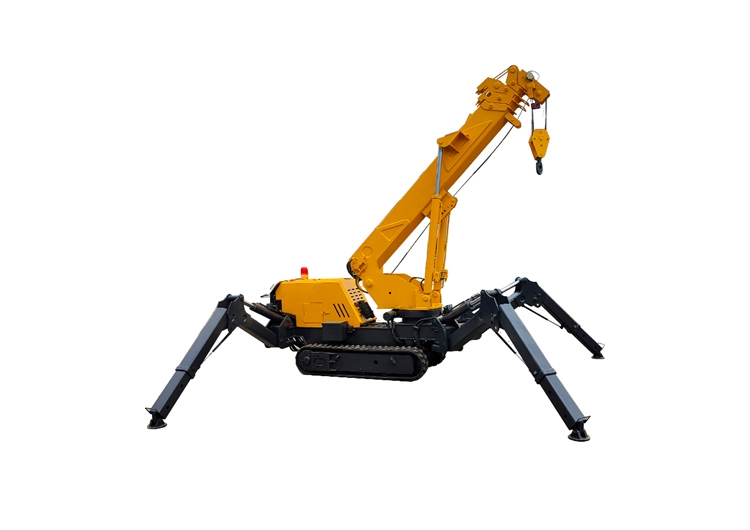Underslung Crane: Key Features and Advantages
Underslung cranes, also known as underhung cranes or suspension bridge cranes, are a specialized type of overhead lifting system designed for precision and efficiency in space-constrained environments. Unlike traditional overhead cranes that run on top of runway beams, underslung cranes are suspended from the ceiling or roof structure, maximizing floor space while delivering exceptional performance. Below, we explore their defining features and why they are a preferred choice for industries worldwide.

Key Features of Underslung Cranes
Space-Saving Design
- Mounted directly to the building’s roof structure or overhead support beams, underslung cranes eliminate the need for floor-mounted runways or columns. This frees up valuable floor space for equipment, workflows, or storage.
Lightweight and Modular Construction
- Built with high-strength steel or aluminum, underslung cranes are lightweight yet durable. Their modular components allow for easy customization to fit specific facility layouts and load requirements.
Flexible Movement
- Equipped with trolleys and hoists that glide along the suspended runway, these cranes offer smooth 360° coverage within their working area. Some models even support curved or branched tracks for multi-zone operations.
Low Headroom Requirement
- With the hoist and trolley positioned below the runway beam, underslung cranes require minimal vertical clearance, making them ideal for low-ceiling facilities like workshops or warehouses.
Scalable Load Capacity
- Available in capacities ranging from 1 ton to 20+ tons, underslung cranes can handle diverse applications—from light assembly tasks to heavy material handling.
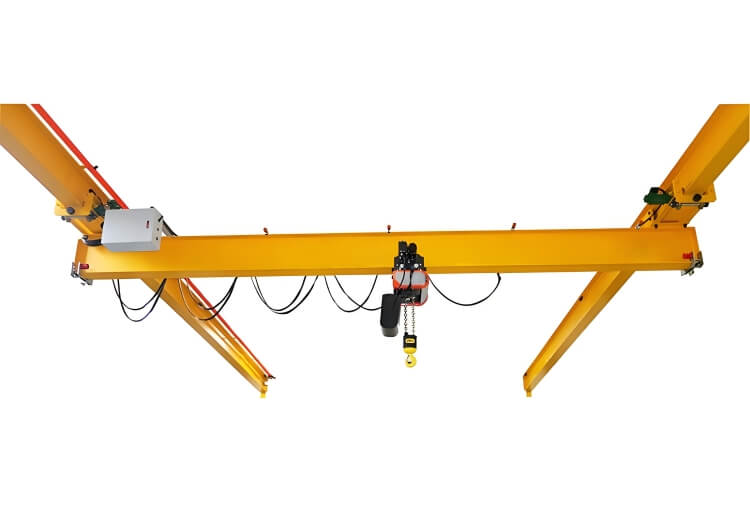
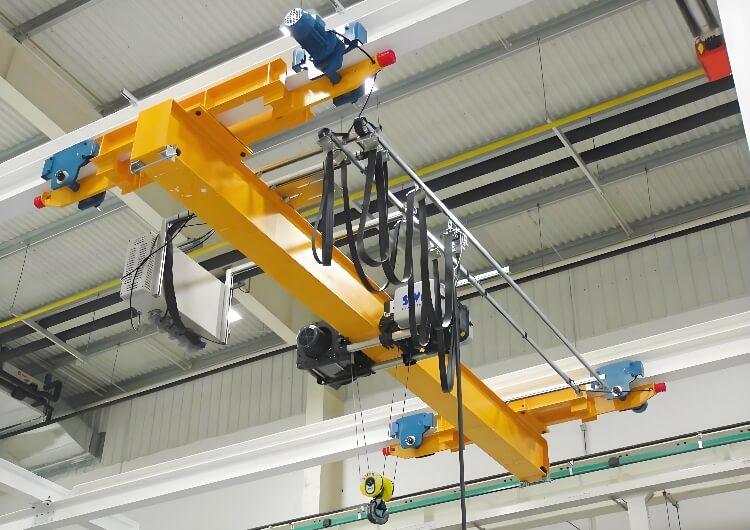
Advantages of Underslung Cranes
Maximized Facility Utilization
- By utilizing overhead space, these cranes enable facilities to optimize layouts without compromising productivity. This is critical for industries like automotive manufacturing, logistics, and aerospace.
Cost-Effective Installation
- Since underslung cranes leverage existing building structures (e.g., roof girders), installation costs are often lower compared to traditional cranes requiring dedicated support systems.
Enhanced Safety
- The enclosed track design minimizes the risk of derailment, while overload protection and precision controls ensure safe operation. Many models comply with global safety standards (e.g., ISO, OSHA).
Reduced Maintenance
- With fewer ground-level components exposed to dust, moisture, or debris, underslung cranes require less frequent maintenance. Their modular parts also simplify repairs or upgrades.
Adaptability to Automation
- These cranes integrate seamlessly with automated systems, such as remote controls, programmable logic controllers (PLCs), or IoT-enabled sensors, supporting Industry 4.0 initiatives.

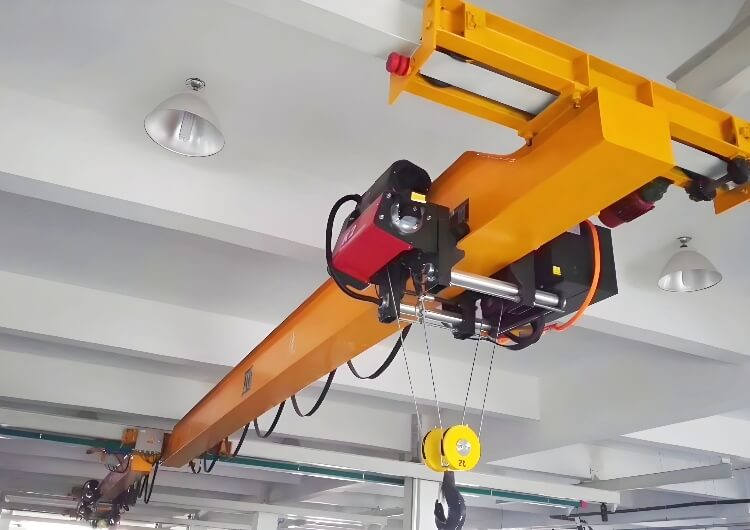
Ideal Applications
Underslung cranes excel in environments where space, precision, and flexibility are paramount:
- Assembly Lines: Precise positioning of components in automotive or electronics manufacturing.
- Warehouses: Efficient loading/unloading of goods in storage facilities.
- Maintenance Workshops: Safe handling of machinery repairs.
- Clean Rooms: Contamination-free lifting in pharmaceutical or semiconductor production.
Conclusion
Underslung cranes offer a unique blend of space efficiency, versatility, and cost savings, making them a strategic investment for modern industries. Whether upgrading an existing facility or designing a new workspace, their compact design and robust performance ensure long-term operational advantages.
All News
Recent Posts
2025/1/25
2025/2/7
2024/8/1
Contact Us Now
Have questions about our cranes or need help?
Reach out to our friendly team for expert support and guidance.
We are here to help you power your journey towards a greener future !
Address: Crane Industry Park, Xinxiang City Henan Provice

